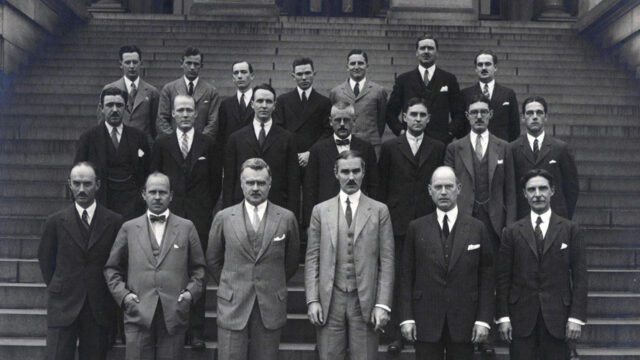
The Rogers Act: 100 Years of the Foreign Service
As the United States emerged as a global power in the early 20th century, the State Department’s 18th-century personnel structure created by Thomas Jefferson no longer fit the needs of the government.
In 1924, the Director of the Consular Service, Wilbur Carr, set out to enact personnel reform. He found an eager ally in Massachusetts Congressman and WWI veteran, John Jacob Rogers. Rogers believed a professional Foreign Service was essential for global peace and stability. He advocated for Congress to pass legislation to create this organization.
The Foreign Service Act of 1924, commonly known as the Rogers Act, established the modern U.S. Foreign Service as a career organization with employment based on competitive examination and merit. This change immediately affected the scope and impact of the Foreign Service. The merit-based system led to the personnel diversity we see today.
In commemoration of the 100th anniversary of the Rogers Act, please join us on May 8, 2024, from 12:15 to 1:15 pm EDT for a presentation from NMAD’s Historian, Dr. Alison Mann, on the people behind the Act and their motivations for reform. She will also discuss the immediate effects of the Act and how it affected the 1924 Immigration Act.
Following Dr. Mann’s presentation, we invite you to view our Spotlight On Diplomacy exhibit featuring objects related to the Rogers Act including Chinese flashcards used by new Foreign Service Officers in 1934, and a training pamphlet from 1950. If you cannot attend the program, the exhibit will also be viewable during our Spring Open House on May 1.
Please RSVP by May 3, 2024.
Registrations for this program have closed.
Arrival Instructions
NMAD is located at 330 21st St NW, Washington, DC 20006, in the Harry S Truman Building. Visitors must enter at the 21st Street entrance to the U.S. Department of State (the glass building on 21st Street between D Street and C Street, NW).
Please arrive by 12:00 pm to allow ample time for security processing. A government-issued photo ID is required for entry (e.g. passport, U.S. driver’s license).
For further information or if you require reasonable accommodations to attend the event, please contact Emma Guyette (guyettee@state.gov).